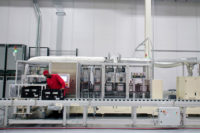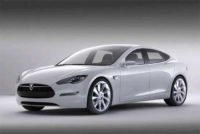SANTA MONICA, CA—Electric vehicle sales in the United States are poised to hit their highest level on record in 2021, according to Edmunds Inc. The automotive research company predicts that EV sales will make up 2.5 percent of retail sales this year vs. 1.9 percent in 2020.
"After years of speculation and empty promises, 2021 is actually shaping up to be a pivotal year for growth in the EV sector," says Jessica Caldwell, executive director of insights at Edmunds. "We're not only about to see a massive leap in the number of EVs available in the market; we're also going to see a more diverse lineup of electric vehicles that better reflect current consumer preferences.
“And, given that the new presidential administration has pledged its support for electrification, the U.S. is likely to see incentive programs targeted at fostering the growth of this technology further,” predicts Caldwell.
Edmunds analysts anticipate that 30 EVs from 21 brands will become available for sale in the U.S. this year, compared to 17 vehicles from 12 brands in 2020. Notably, this will be the first year that these offerings represent all three major vehicle categories: Consumers will be able to choose among 13 sport utility vehicles, 11 cars and six pickup trucks in 2021. By comparison, only 10 cars and seven SUVs were available last year.
According to Caldwell, this diverse spread of offerings should help encourage stronger loyalty among EV owners, which has dwindled over the years as shoppers have gravitated toward larger vehicles.
"Americans have a love affair with trucks and SUVs, to the detriment of EVs, which have until recently been mostly passenger cars," explains Caldwell. "Automakers should have a much better shot of recapturing some of the EV buyers who they've lost now that they can offer larger, more utilitarian electric vehicles."
This infusion of fresh new products comes at a time where the market is also seeing a positive shift in consumer interest in EVs.
"Besides affordability, one of the biggest barriers to increased EV sales has simply been tepid consumer reception — it's been tough for companies that aren't Tesla to crack the code of how to get shoppers hyped up for these vehicles," says Caldwell. "But, in the past year, we've seen automakers throw huge advertising dollars behind their EV launches in an attempt to drum up some buzz, and it's promising that consumers seem to at least be more aware of the options out there."



